Hi there, pet lovers! 🐦
Canaries (Serinus canaria) are one of the most beloved pet birds in the world, admired for their sweet songs, vibrant feathers, and manageable care needs. For centuries, these cheerful little birds have been companions to people across the globe, from noble courts in Europe to modern-day homes and apartments. Their calming presence and soothing melodies make them a favorite for bird enthusiasts of all ages.
In this detailed review, we’ll cover everything you need to know about canaries—what makes them great companions, how to properly care for them, and what to expect in terms of costs and commitment. Whether you’re completely new to bird-keeping or a seasoned pet owner looking for something different, this guide will help you decide if a canary is the right choice for your home.
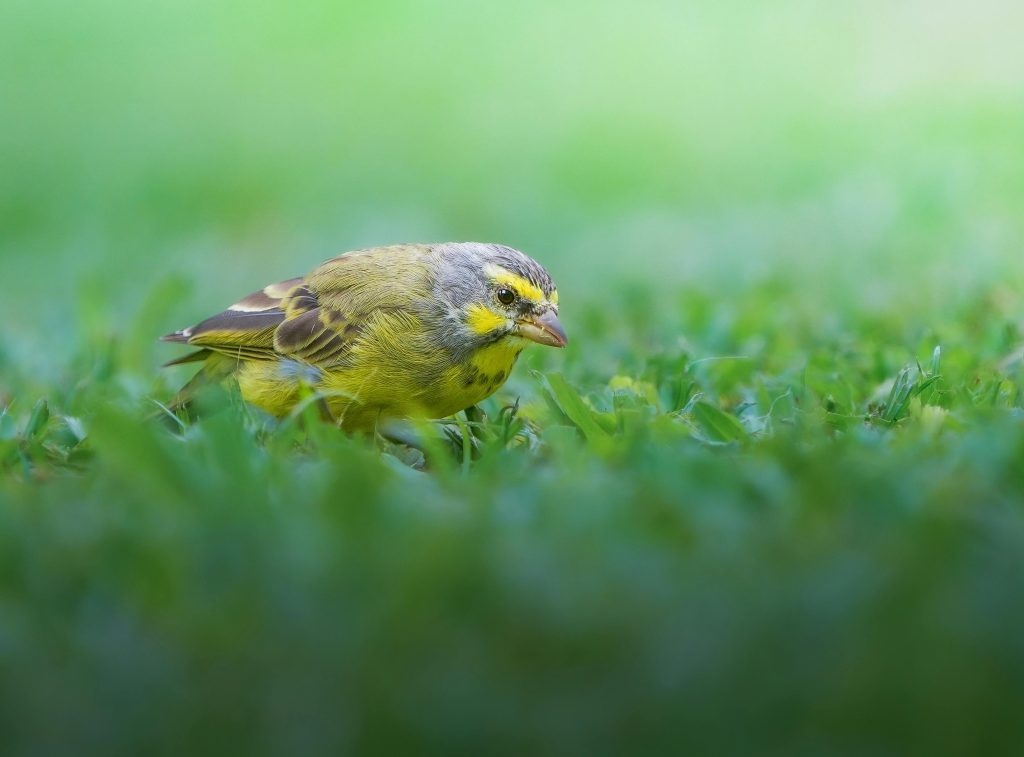
Overview
Canaries are small songbirds originally native to the Canary Islands, Azores, and Madeira. Over 400 years of selective breeding has created a wide variety of colors, sizes, and song styles. They are known for their melodious singing, especially males, and their relatively simple care requirements compared to larger parrots or exotic birds. Here’s a quick summary of what makes them stand out:
- Handling and Temperament: Friendly but not hands-on; they are best enjoyed visually and aurally.
- Care and Maintenance: Low-maintenance with basic dietary and cleaning needs.
- Health and Durability: Hardy birds when provided with a clean environment and proper diet.
- Availability: Widely available from breeders, pet shops, and bird shows.
- Cost: Affordable both to purchase and to maintain.
- Overall: A wonderful companion for those seeking a calm, low-maintenance pet with beautiful songs.
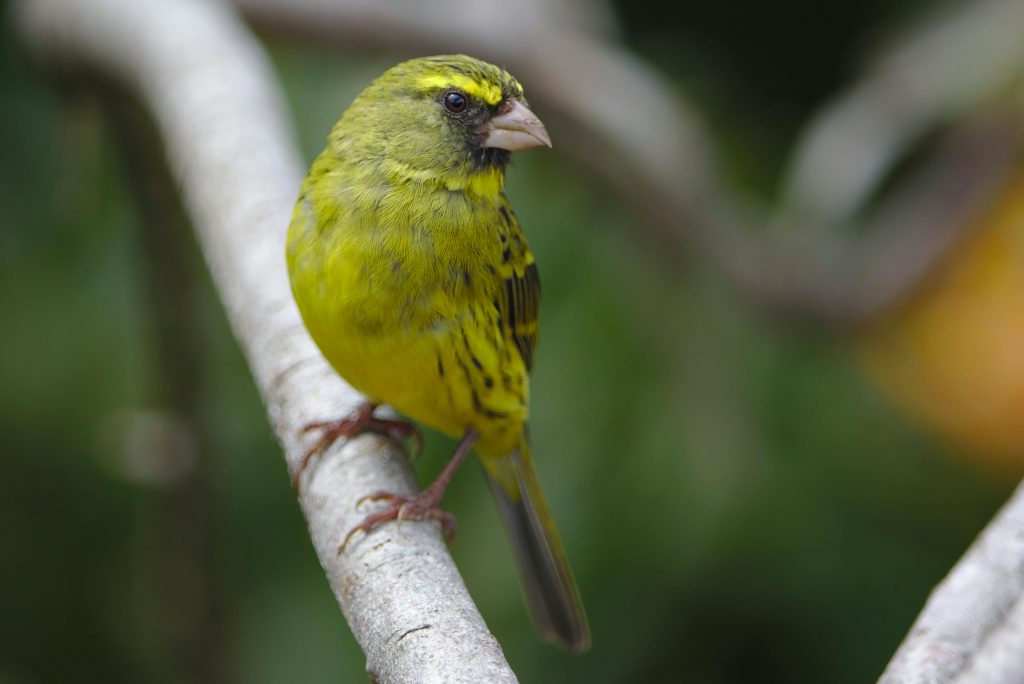
Why Choose a Canary?
Canaries have captivated people for centuries with their song and beauty. Unlike parrots, they are not demanding of constant attention and do not require large enclosures or high-maintenance diets. This makes them an excellent choice for people with busy lifestyles, small living spaces, or those who want a companion animal without excessive demands.
Their lifespan of 8–12 years (with proper care, sometimes up to 15 years) also makes them a long-term but manageable commitment. They are also quieter compared to many other pet birds, with their pleasant songs adding ambiance without being overwhelming.
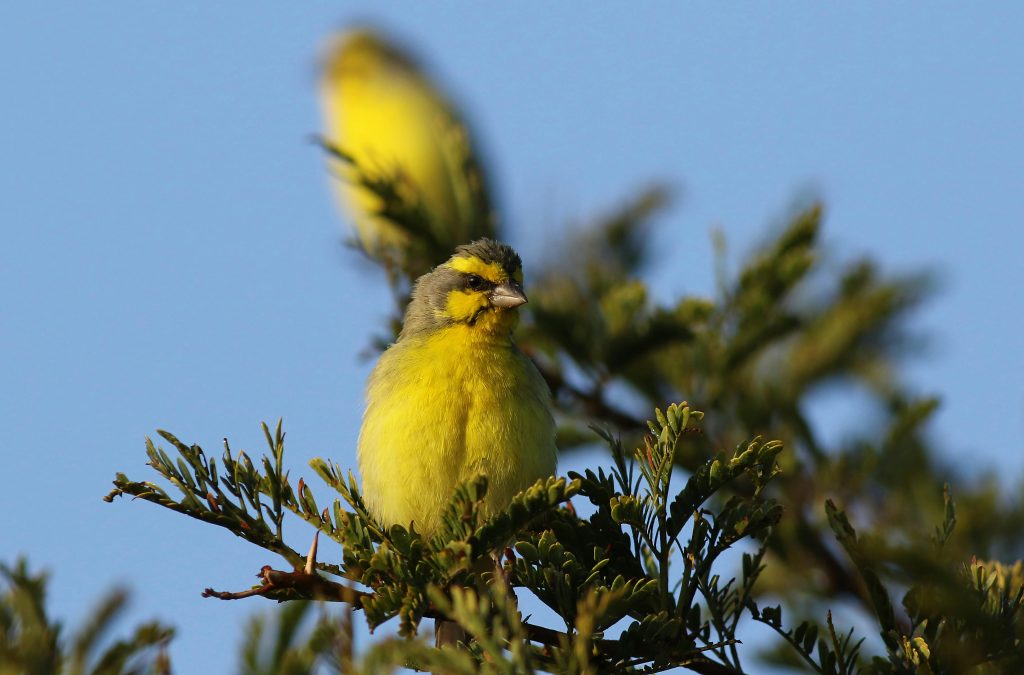
Handling and Temperament
Canaries are observational pets. While some may tolerate gentle interaction, they are not naturally inclined to be cuddled or handled like parrots. Instead, their charm lies in their vibrant appearance, graceful movements, and, for males, their singing ability.
Personality Variations
- Male canaries are prized for their vocal abilities, producing long, elaborate songs.
- Females sing less often but are equally charming with their calm presence.
- Some canaries are naturally shy, while others are curious and enjoy engaging with their surroundings.
Interaction Style
- They rarely bite, even when stressed.
- They prefer being admired rather than physically handled.
- Gentle daily interaction—such as talking, whistling, or sitting nearby—helps them feel secure.
Sociability
- Canaries can be housed alone and still thrive, unlike many birds that need flock companionship.
- Some owners choose to keep multiple canaries, but care must be taken as males may fight, especially during breeding season.
Overall, canaries are ideal for those who appreciate a bird’s presence without needing constant physical interaction.
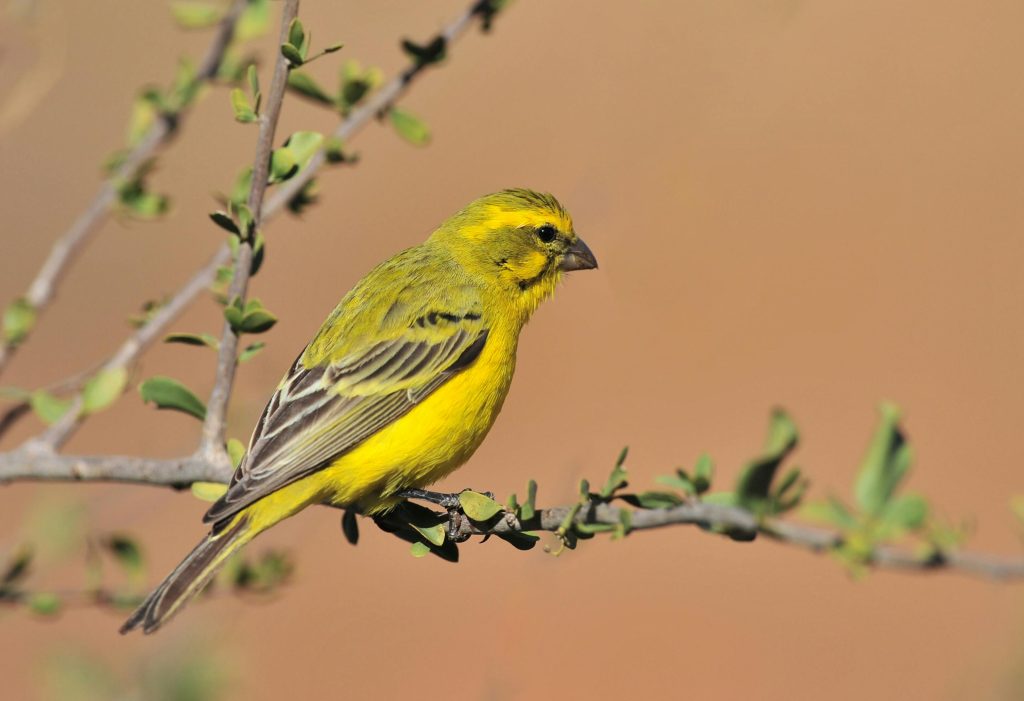
Care and Maintenance
Though low-maintenance compared to many birds, canaries do have specific needs. Proper housing, diet, and enrichment are key to keeping them healthy and happy.
Enclosure Setup
- Size: The minimum recommended cage size is 18 x 18 inches (45 x 45 cm) for a single bird, though larger is always better. A rectangular flight cage of 30 x 60 cm or more is ideal for exercise.
- Shape: Avoid round cages, as they disorient birds. Rectangular cages provide corners for security and more usable flying space.
- Perches: Offer natural wooden perches of varying diameters to promote foot health.
- Accessories: A small bird bath, food and water dishes, and safe toys like ladders, bells, or swings should be included.
Environment
- Placement: Keep the cage in a well-lit, quiet area, away from drafts and direct sunlight.
- Social Setting: Canaries thrive when placed where they can see household activity without being overwhelmed by noise.
Diet and Nutrition
A balanced diet is crucial for canary health.
- Seed Mix: High-quality canary seed should form the staple of their diet.
- Fresh Foods: Supplement with vegetables (spinach, kale, carrot tops, broccoli) and fruits (apple slices, berries).
- Protein: Provide egg food or sprouted seeds during molting or breeding seasons.
- Calcium: A cuttlebone or mineral block helps strengthen bones and beaks.
- Water: Fresh, clean water must be available daily.
Lighting
While not as dependent on UVB light as reptiles, canaries benefit from natural light cycles. Exposure to natural sunlight (indirect, not direct) or full-spectrum lighting helps maintain their circadian rhythm.
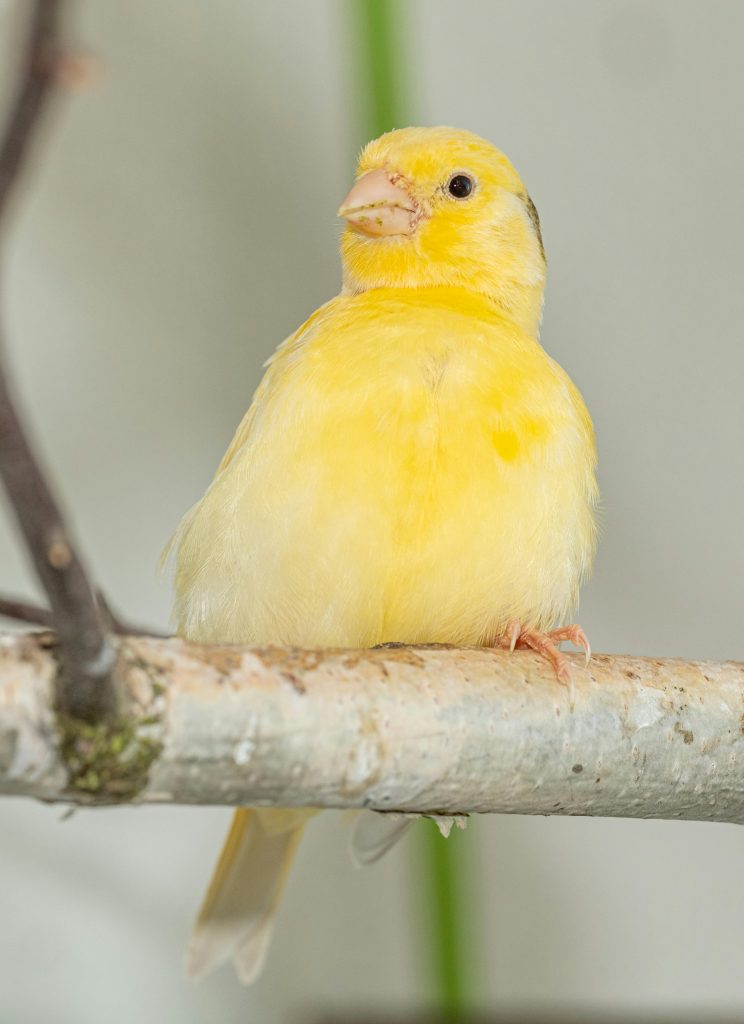
Health and Durability
Canaries are generally hardy birds but can suffer if their environment is neglected.
Common Health Issues
- Respiratory Illnesses: Often caused by drafts, dusty environments, or strong fumes.
- Obesity: Results from too many fatty seeds without enough exercise.
- Mites: Scaly face mites and air-sac mites can be issues if not monitored.
- Molting Stress: Canaries molt once a year; during this time, extra nutrition is essential.
Preventative Care
- Keep the cage clean to avoid bacterial infections.
- Provide a balanced diet with supplements as needed.
- Observe daily behavior—loss of singing, lethargy, or fluffed feathers may indicate illness.
With attentive care, canaries can live well beyond their average lifespan from 8–12 years (with proper care, sometimes up to 15 years), becoming long-term companions.
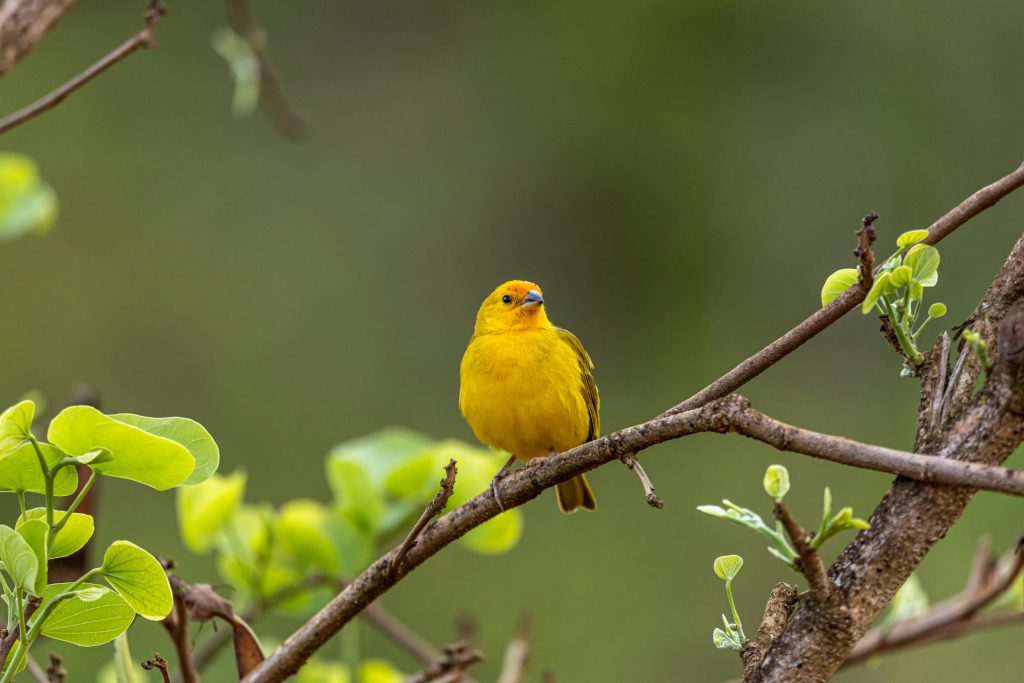
Availability and Cost
Canaries are one of the most accessible pet birds in the world.
Where to Buy
- Breeders: Best option for healthy birds with known lineage.
- Pet Shops: Readily available, though quality may vary.
- Bird Shows or Societies: Excellent for finding rare breeds or show-quality birds.
Costs
- Bird Price: Standard canaries usually cost $50–$150. Rare breeds, such as red-factor or exhibition canaries, can cost $200–$500 or more.
- Setup Cost: A suitable cage, accessories, and initial supplies range from $100–$250.
- Ongoing Maintenance: Food, supplements, and toys typically cost around $10–$20 per month.
Overall, they are considered an affordable pet both in terms of purchase price and upkeep.
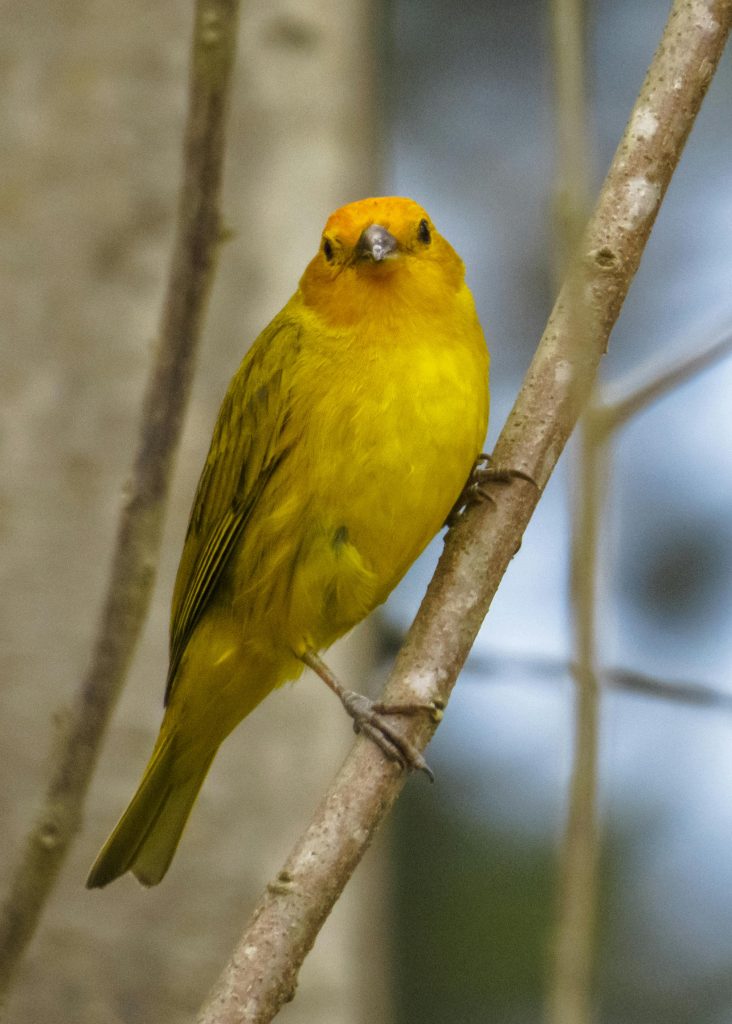
Pros and Cons
Like all pets, canaries come with advantages and challenges.
Pros
- Beautiful singing, especially from males.
- Low-maintenance compared to parrots or exotic birds.
- Affordable to buy and care for.
- Long lifespan of 8–12 years.
- Wide variety of breeds and colors to choose from.
Cons
- Not a hands-on pet; they prefer observation over handling.
- Males may fight if housed together.
- Require regular cleaning to maintain a healthy environment.
- Sensitive to fumes (e.g., from kitchens or cleaning products).
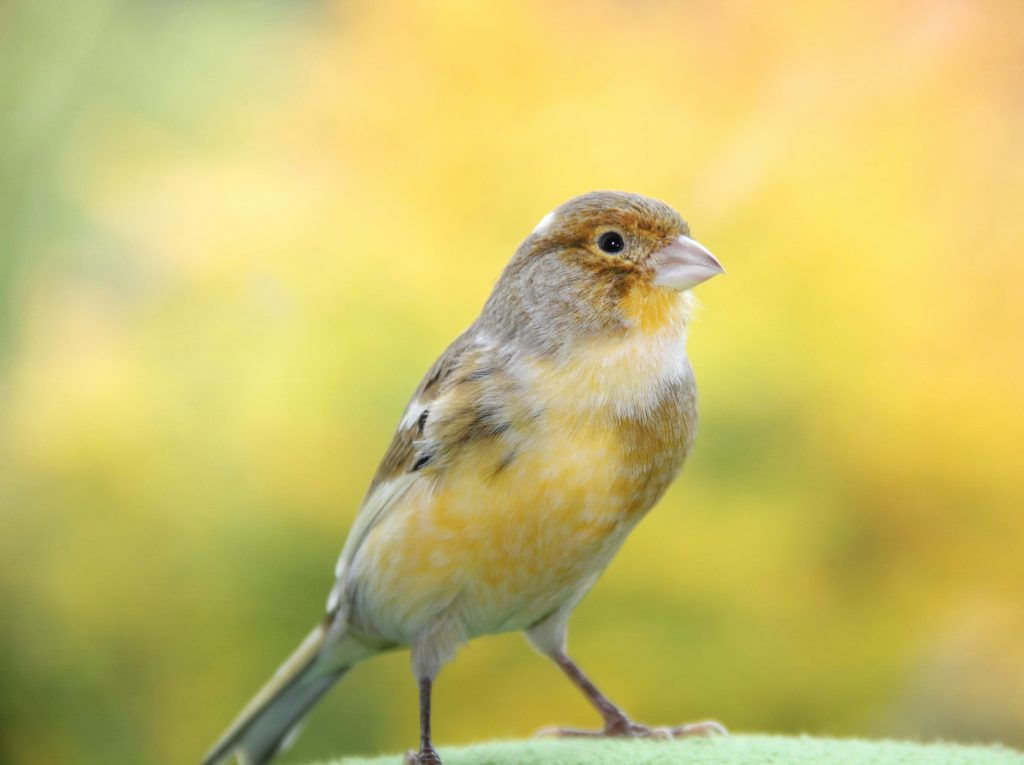
Final Thoughts
Canaries are an excellent choice for anyone who values the beauty and music of birds but does not want a high-maintenance or hands-on pet. Their cheerful songs, colorful feathers, and manageable care needs make them one of the most rewarding pet birds available.
Whether kept as a single singing companion in a cozy apartment or as part of a collection of different breeds for exhibition, canaries continue to be cherished worldwide. With proper housing, a balanced diet, and regular care, these delightful birds will brighten any home with their presence.
For those seeking a pet that combines charm, beauty, and simplicity, the canary may just be the perfect feathered friend. 🐦

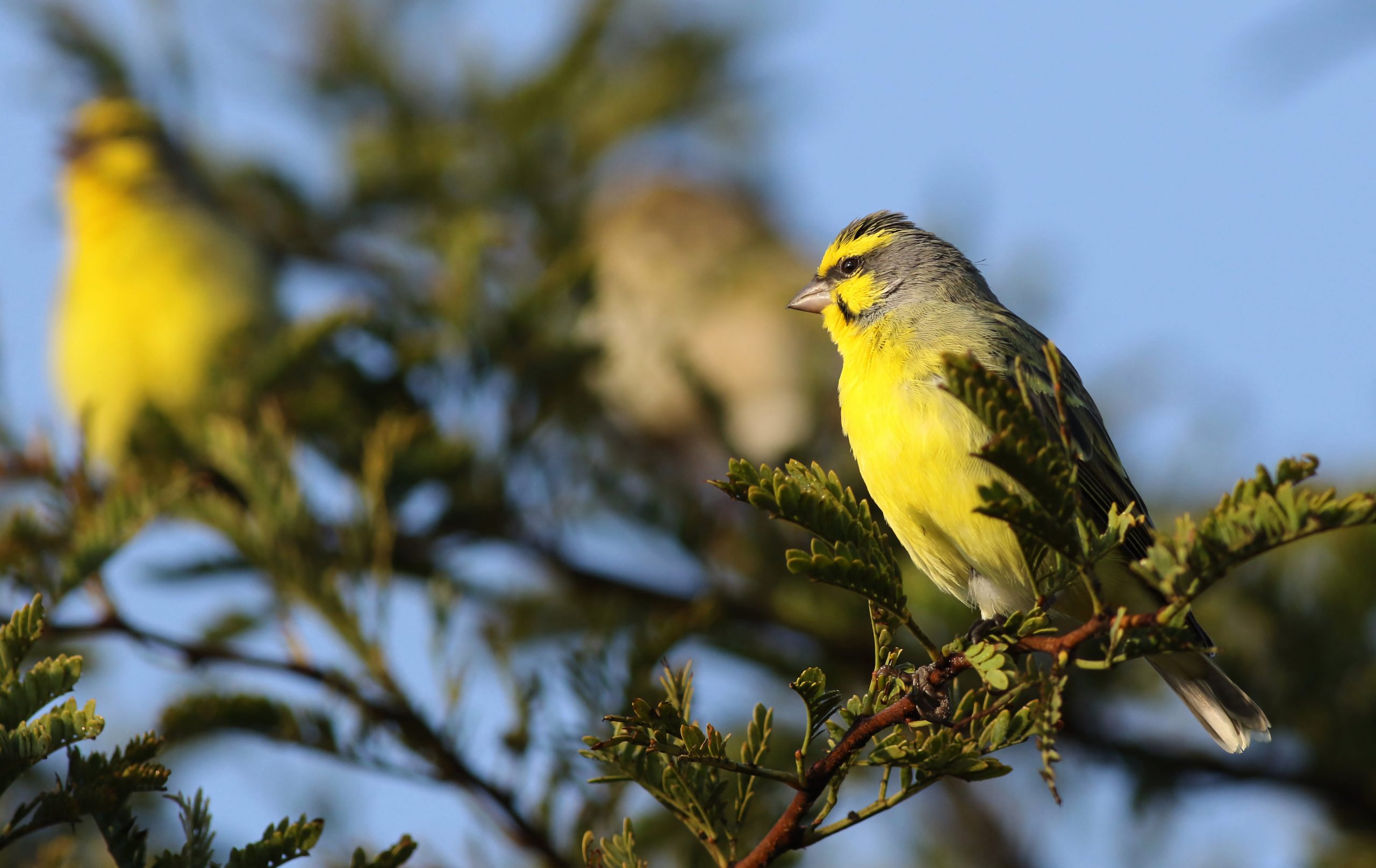

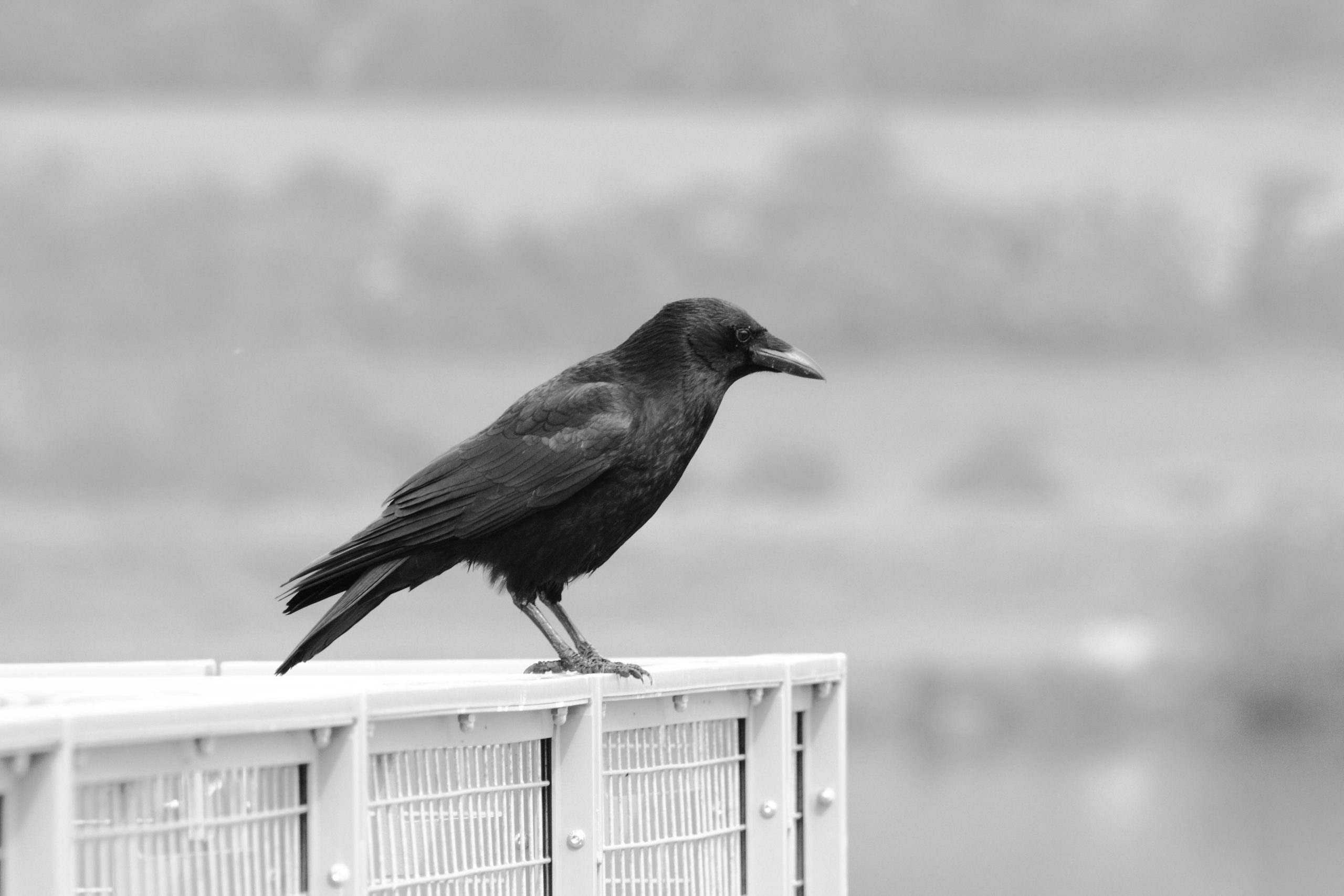
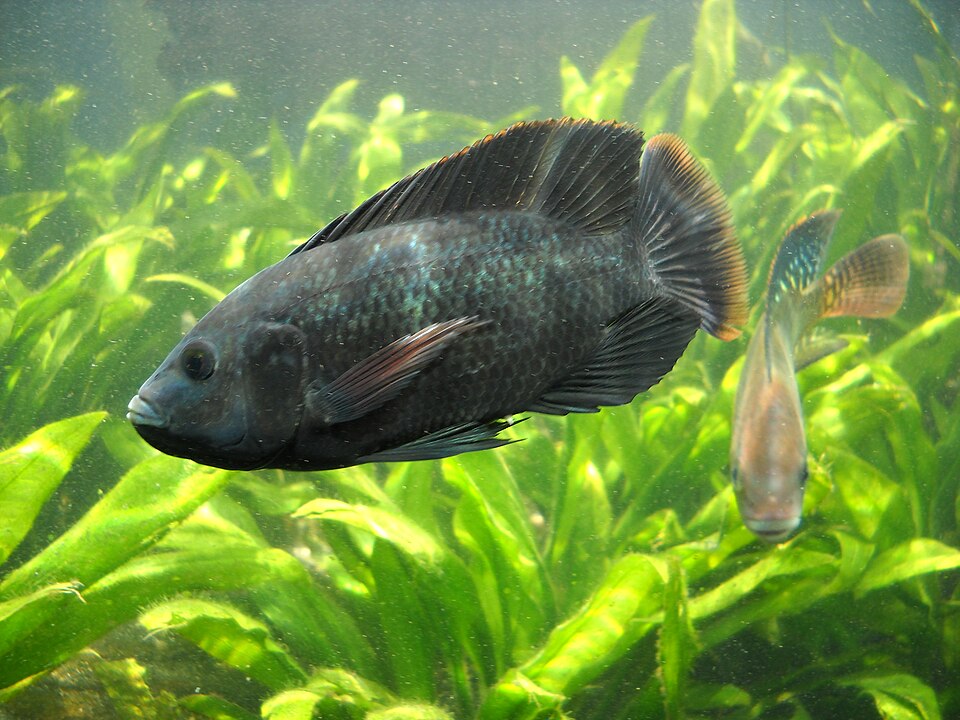
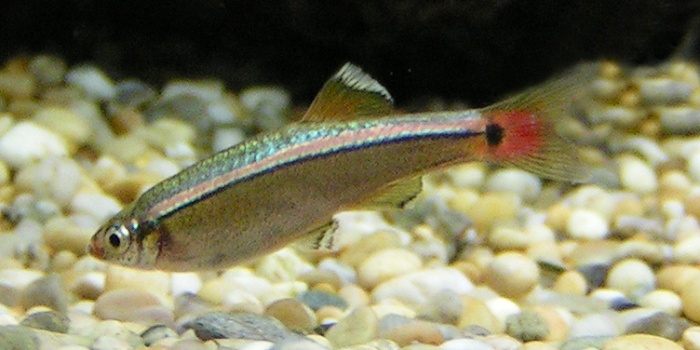
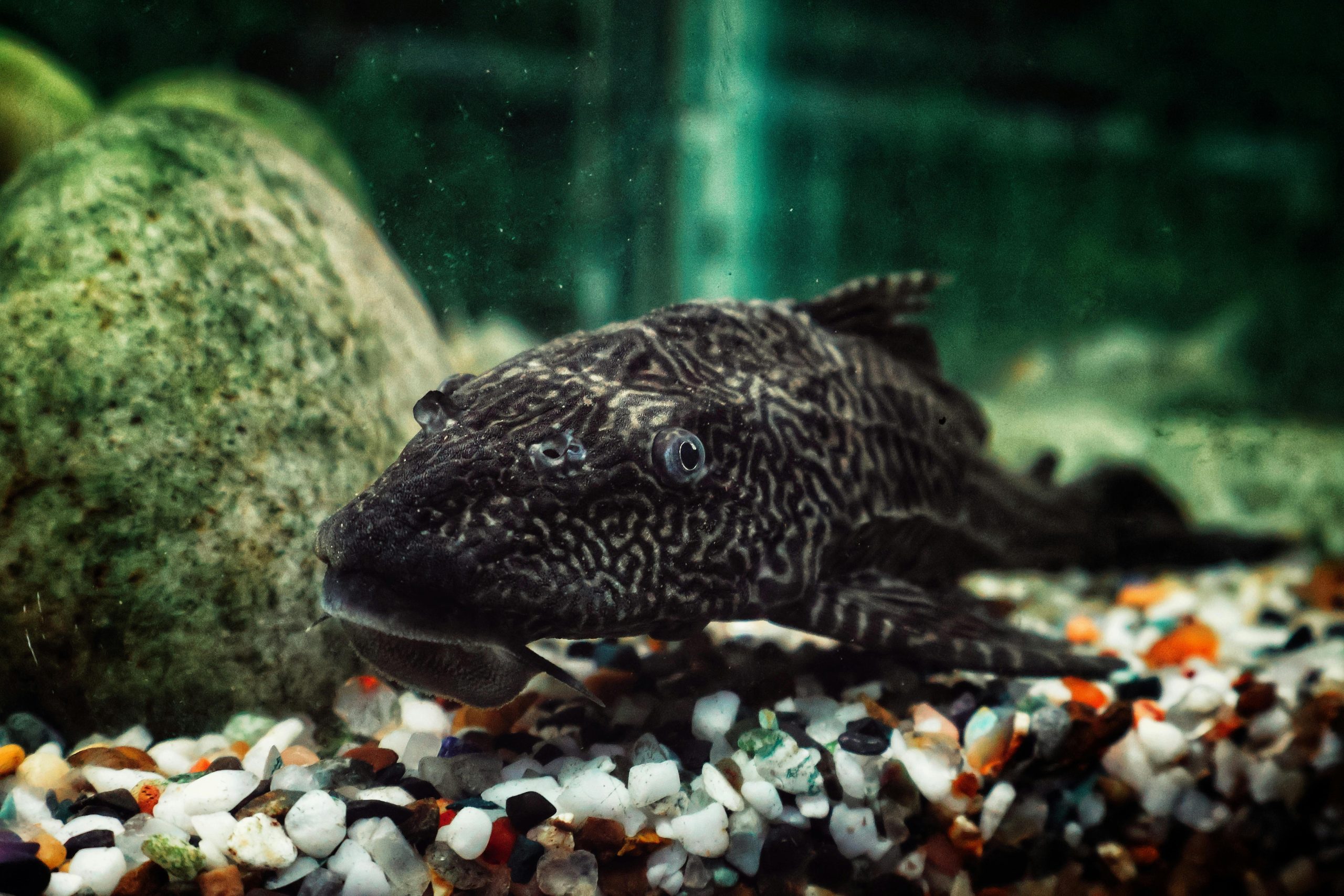
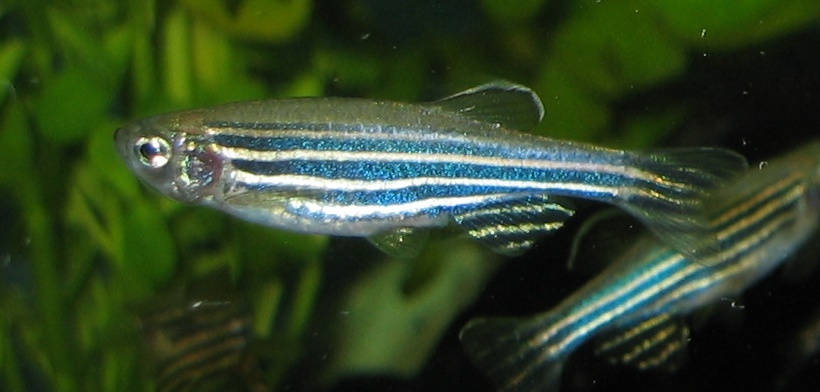
Leave a Reply